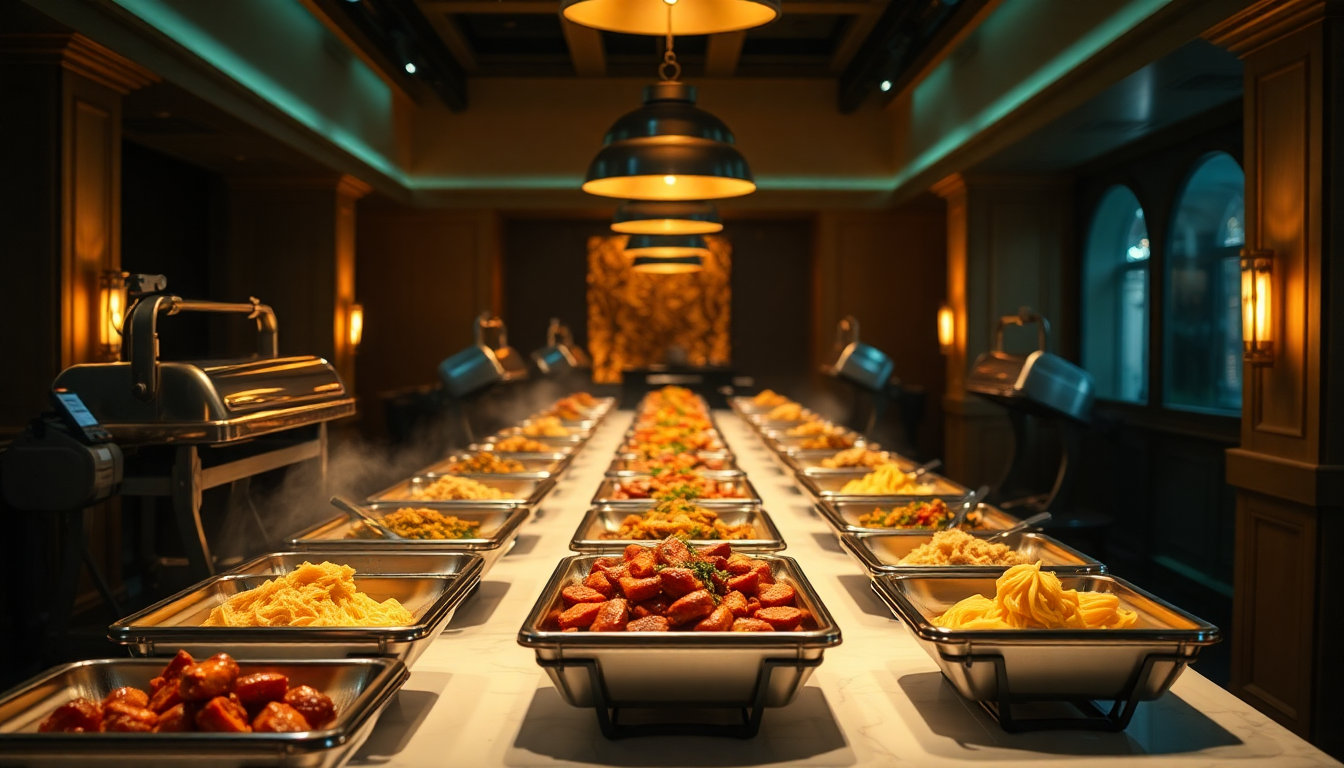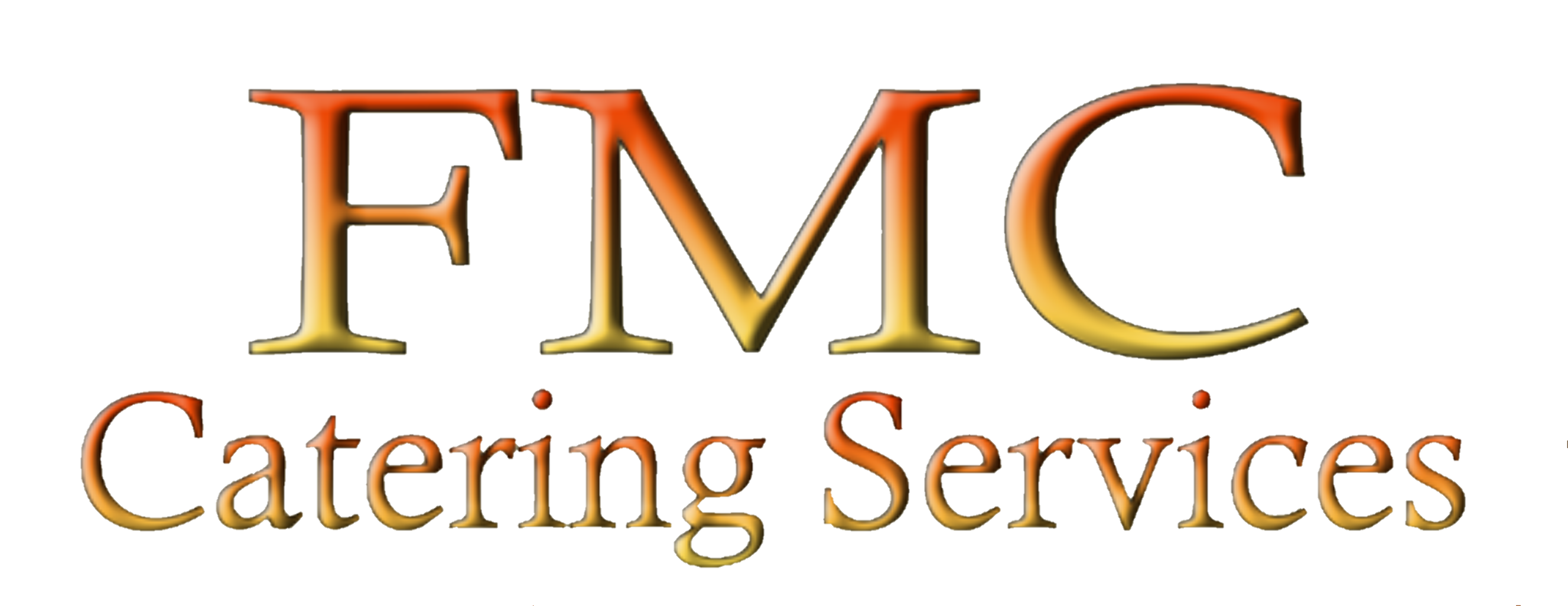Catering is the job of providing food and drinks for people. It’s the business of providing food and drink at events, for organizations, and more. It’s more than just delivering food; it’s an art that combines culinary expertise, creativity, and logistics to create a memorable dining experience3. Catering services are crucial in enhancing events, satisfying guests, and reflecting the host’s attention to detail.
Types of Catering Services
Catering services can be categorized into various types based on factors such as event type, location, and service style. Here are some common types:
- Restaurant Catering: Restaurants often offer catering services, providing food for events either at the restaurant itself or at a different location. This is a popular choice for small to medium-sized events due to the restaurant’s established menu and service quality.
- On-Site Catering: This involves preparing and serving food at the event venue itself. It’s common for weddings, corporate events, and large parties where fresh food preparation is desired. On-site catering often allows for greater flexibility in accommodating special requests.
- Off-Site Catering: Food is prepared at a separate location and transported to the event venue. This is often used for outdoor events or venues without kitchen facilities. Off-site catering requires careful planning and logistics to ensure timely delivery and proper food handling.
- Event Catering: This is a broad term that encompasses any catering service provided at an event. It can include any of the above types, as well as specialized options like food trucks, bar and grill catering, and more.
- Full-Service Catering: This comprehensive service includes not only food preparation but also setup, serving, and cleanup. Full-service caterers may handle everything from arranging tables and chairs to providing linens and tableware. They often play a key role in coordinating the event’s flow and ensuring a smooth dining experience.
- Drop-Off Catering: This involves preparing the food and delivering it to the event location, typically without any additional services like setup or serving. It’s a more budget-friendly option suitable for casual events or when the host prefers to handle the logistics themselves.
- Mobile Catering: Food trucks and food carts fall under this category, offering a flexible and convenient option for outdoor events, festivals, and casual gatherings.
- Boutique Catering: This specialized type of catering focuses on creating unique and interactive dining experiences. Chefs may cook on-site, explain their techniques, and engage with guests, offering a more intimate and personalized service.
Choosing the right type of catering service depends on several factors, including the type of event, the number of guests, the budget, and the level of service required. For example, a large, formal wedding might call for full-service catering, while a small office meeting could be well-served by a simple drop-off service.
What Does a Catering Service Include?
Catering services typically include a range of offerings beyond just food preparation. Here are some key components:
Menu Planning
Caterers work closely with clients to design menus that align with the event’s theme, guest preferences, and dietary restrictions. They offer a variety of options, from appetizers and main courses to desserts and beverages. This collaborative approach ensures that the menu is tailored to the specific needs and preferences of the client and their guests.
Food Preparation

Caterers use fresh, high-quality ingredients to prepare delicious and visually appealing dishes. They adhere to strict food safety standards to ensure that all food is safe to consume.
Presentation
Caterers pay close attention to the presentation of food, arranging dishes in an attractive and appetizing manner. They may use garnishes, decorations, and creative plating to enhance the dining experience.
Service
Many catering services include staffing to serve food, clear tables, and assist guests. Well-trained and professional staff can significantly enhance the overall event experience by ensuring smooth service and attending to guests’ needs.
Logistics

Caterers handle the logistics of food delivery, setup, and cleanup. They ensure that food arrives on time, is kept at the appropriate temperature, and that the event space is clean and organized before, during, and after the event.
Equipment Rental
Some caterers offer equipment rentals, such as tables, chairs, linens, tableware, and serving utensils. This can be a convenient option for clients who don’t have the necessary equipment or prefer to have everything handled by the caterer.
Catering for Special Dietary Requirements
In today’s diverse world, catering for special dietary requirements is crucial. Whether it’s allergies, religious restrictions, or lifestyle choices, caterers must be prepared to accommodate a variety of needs. It’s important to offer options such as vegetarian, vegan, gluten-free, or dairy-free dishes to ensure that all guests can enjoy the event without worry. This inclusivity not only reflects a commitment to customer satisfaction but also demonstrates an awareness of the growing importance of dietary diversity.
Catering for Different Events
Catering services are tailored to meet the specific needs of different events. Here are some examples:
Weddings
Wedding catering often involves elaborate menus, elegant presentations, and meticulous service. Caterers may also assist with other aspects of the wedding, such as coordinating the cake cutting and toasts.
Different service styles are available for wedding catering, each offering a unique level of formality and guest interaction:
- Food Stations: Strategically placed food stations throughout the venue allow guests to mingle and select their preferred dishes.
- Family Style: Large dishes are served at each table, encouraging guests to share and interact while dining.
- Plated & Served: This formal style involves guests being seated and served individual meals by waitstaff.
Birthday Parties
Catering for birthday parties can be customized to match the age group and theme of the celebration. Caterers may offer kid-friendly menus, fun presentations, and interactive activities.
Several catering options are available for birthday parties:
- Full-Service: This includes setup, serving, and cleanup, allowing the host to focus on enjoying the party.
- Pick-Up: Pre-made party platters and desserts can be picked up from the caterer, offering a convenient option for smaller gatherings.
- Drop-Off: Catered food is delivered to the party location, providing flexibility and ease of setup for the host.
These options can be further customized with various flavors, toppings, and presentations to create a unique and memorable birthday celebration.
Corporate Catering
Corporate catering plays a significant role in the catering industry, providing food services for a wide range of business events. These events can vary in size and formality, from small office meetings to large conferences and gala dinners.
Caterers offer various options to suit the specific needs of corporate events:
- Box Lunches: Individually packaged meals are a convenient option for meetings and training sessions.
- Buffet-Style Meals: Buffets offer variety and flexibility for larger gatherings and allow attendees to choose their preferred dishes.
- Full-Service Catering: This option provides a more formal dining experience with on-site food preparation and service by waitstaff. It is often preferred for important meetings, executive retreats, and corporate celebrations.
Corporate catering services can help create a positive and productive work environment by providing employees with delicious and nutritious meals. It can also enhance company culture and facilitate team building by providing opportunities for employees to connect and socialize during meal breaks.
Catering Industry Overview
The catering industry is a significant part of the food service sector, with a global market size valued at $154.71 billion in 2024. The U.S. catering services market was estimated at $60.4 billion in 2022. The industry is expected to continue growing in the coming years, driven by factors such as the increasing popularity of outsourced food services, rising consumer spending on premium food experiences, and the growing demand for catering at corporate events and social gathering. The global catering market is expected to reach $229.92 billion by 2033, exhibiting a compound annual growth rate (CAGR) of 4.28% from 2025 to 2033.
However, the catering industry has faced challenges in recent years, including the impact of the COVID-19 pandemic and decreasing marriage rates. The pandemic led to event cancellations and a decline in demand for catering services, while the decrease in marriage rates has affected the wedding catering sector. Despite these challenges, the industry is adapting by offering new services, such as no-service catering and delivery options, and focusing on innovation and customer experience to meet evolving needs.
Emerging Trends in Catering
The catering industry is constantly evolving to meet changing consumer preferences and trends. Here are some notable trends:
- Eco-Friendly Practices: Caterers are increasingly adopting sustainable practices, such as using locally sourced ingredients, reducing food waste, and offering eco-friendly packaging. This trend reflects a growing awareness of environmental issues and a desire for more sustainable food systems.
- Technology Integration: Caterers are leveraging technology to improve efficiency and customer experience, using online ordering platforms, delivery tracking systems, and demand forecasting solutions. These technologies help streamline operations, enhance communication with clients, and provide a more convenient and personalized service.
- Dietary Diversity: Caterers are offering a wider range of options to accommodate various dietary needs and preferences, including vegetarian, vegan, gluten-free, and allergen-conscious menus. This trend is driven by the increasing prevalence of food allergies and intolerances, as well as a growing awareness of the health and wellness benefits of diverse diets.
- Luxury Offerings: Caterers are providing high-end options for special occasions, such as premium ingredients, customized menus, and personalized service. This trend caters to clients who are looking for a more exclusive and sophisticated dining experience.
Conclusion
Catering services provide a valuable service by taking care of the food and beverage needs of various events, allowing hosts to focus on other aspects of their event planning. With a wide range of catering options available, clients can choose the service that best suits their needs, budget, and event style. The catering industry is dynamic and continues to adapt to emerging trends, ensuring that it remains a vital part of the hospitality sector.
Looking ahead, the catering industry is poised for continued growth and innovation. The increasing demand for personalized experiences, sustainable practices, and technology integration will shape the future of catering services. Caterers who embrace these trends and prioritize customer satisfaction will be well-positioned for success in this evolving market.

